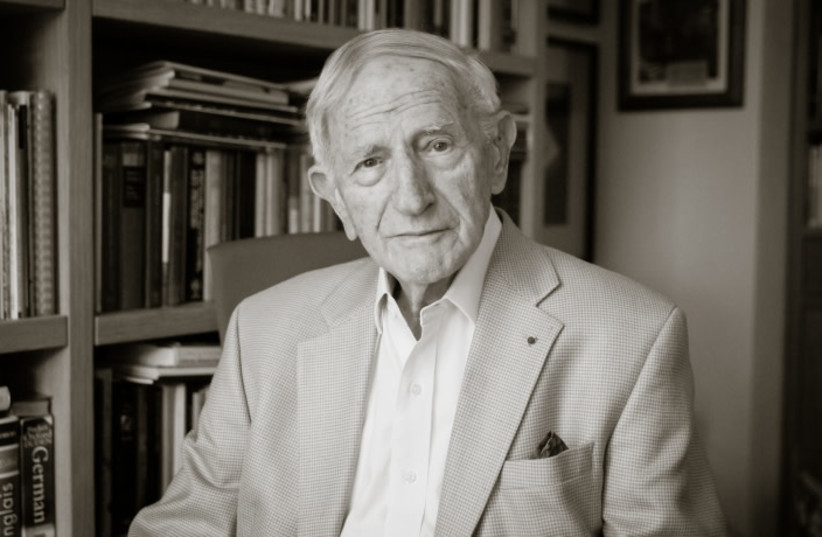World-renowned Israeli immunology expert Michael Sela, who co-invented the multiple sclerosis treatment Copaxone, died on Friday at the age of 98.
A past president of the Weizmann Institute of Science – and an Israel Prize laureate at the age of 35 for his life science research – Sela also was instrumental in developing three cancer treatment drugs, including Erbitux. His lifelong research helped elucidate the genetic control of the immune response, leading to the development of new fields in immunology. He was particularly recognized in the scientific world for his research on synthetic antigens: molecules that provoke an immune response.
Remembering Sela's achievements
Sela was acclaimed for his immunology research, especially regarding synthetic antigens – molecules that trigger the immune system to respond. This led to the discovery of the genetic control of the immune response, as well as to the design of vaccines based on synthetic molecules.
His joint research with Prof. Ruth Arnon on Copaxone took a long time. “We started with a theoretical study in 1967, but our results, including on monkeys, were published only eight years later. We then conducted the first clinical trial, which was published in 1977,” he told The Jerusalem Post’s Judy Siegel in 2017.

The drug’s development was taken over by Israel’s Teva Pharmaceutical Company in 1987, after which it took nine more years to be approved by the drug authorities here and abroad.
“We spent 29 years working together on Copaxone,” he said. “Developing a drug like this takes tremendous patience and a long life.”
From Poland to Israel
Born in Poland in 1924, Sela immigrated to pre-state Israel at the age of 17 after fleeing the Nazis with his family via Romania.
In 1941, shortly after his arrival, he enrolled in the chemistry program at the Hebrew University of Jerusalem. After completing his MSc. in Jerusalem, he went to Geneva to conduct PhD studies, but several months later moved to Italy where he helped whisk European Jews – mostly Holocaust survivors – to Israel.
When Israel’s independence was declared, he became a commercial secretary in the Israeli delegation in Czechoslovakia. His immediate family had escaped to Israel, but many other relatives perished at the hands of the Nazis.
Returning to Israel in 1950, he joined the Weizmann Institute of Science and became a student of the acclaimed biophysicist Prof. Ephraim Katzir, who later became president of Israel. He received his doctorate in protein chemistry from the Hebrew University for research undertaken at the Weizmann Institute, which at the time did not award degrees of its own. In 1963, he was appointed professor.
Sela served the Weizmann Institute in various important capacities. That same year, he founded the Institute’s Department of Chemical Immunology and for the next twelve years, served as its first head. From 1970-73, he was dean of the Institute’s Faculty of Biology, from 1970-71, the institute’s vice president and from 1975-85, its president.
Sela’s numerous prizes and honors included the Israel Prize in the Natural Sciences awarded to him in 1959, when he was 35 years old; the Rothschild Prize in Chemistry (1968); the Otto Warburg Medal awarded by the German Society of Biological Chemistry (1968); the Prize of the Institut de la Vie, France (1984); the Jaubert Prize, Switzerland (1986); and the Albert Einstein Golden Medal, UNESCO (1995).
Sela is survived by his wife, Sara Sela, and three daughters.
